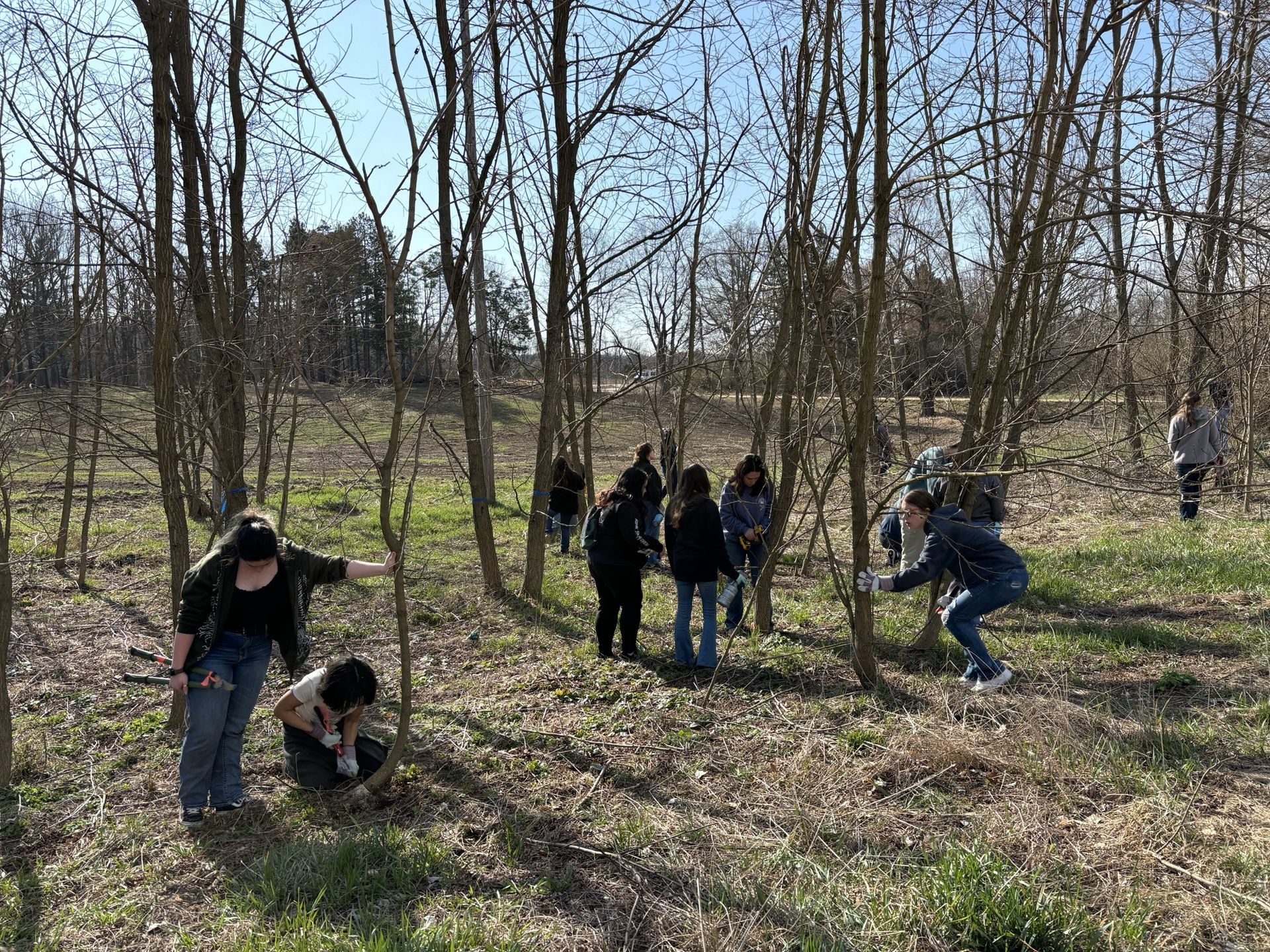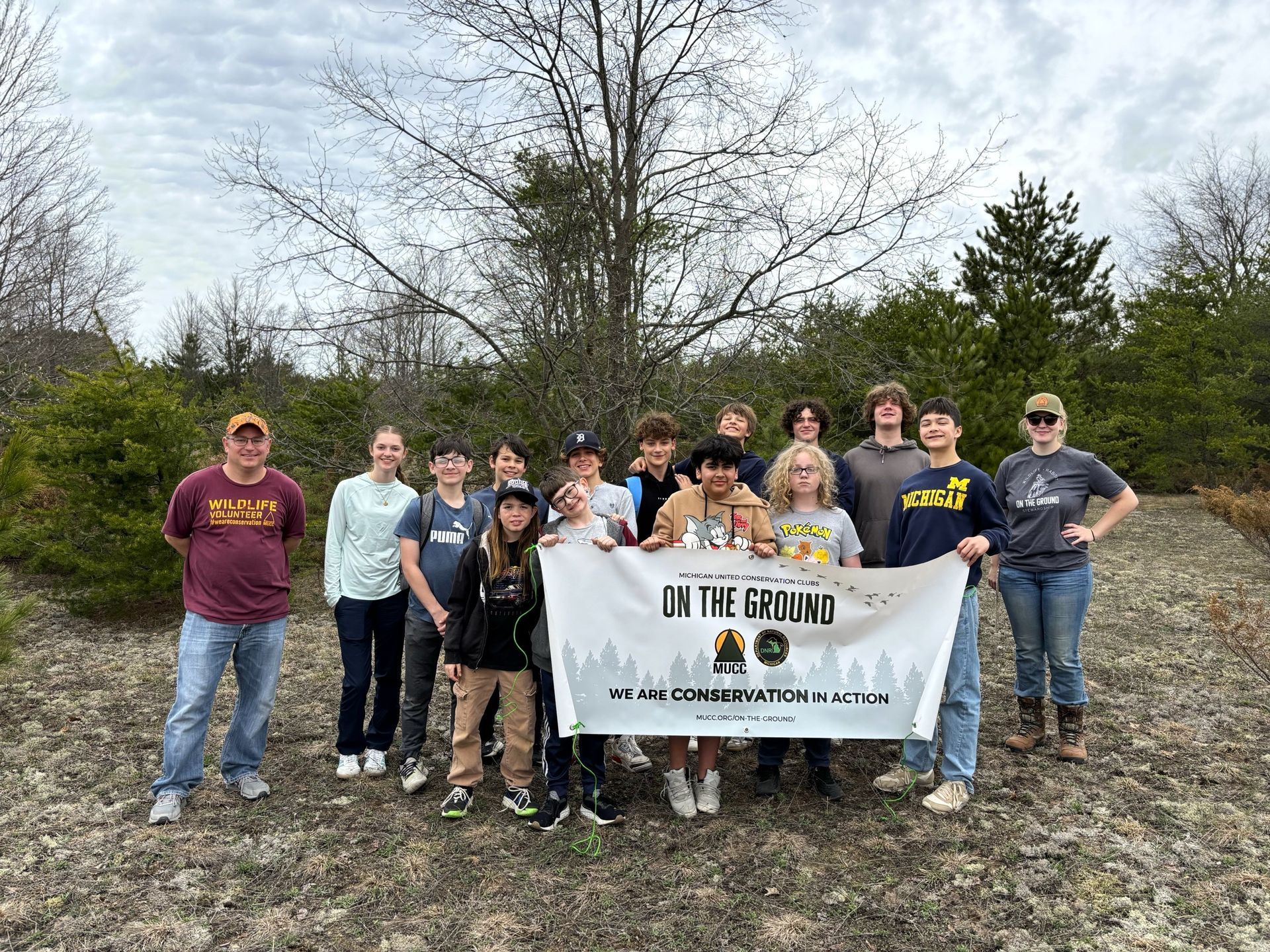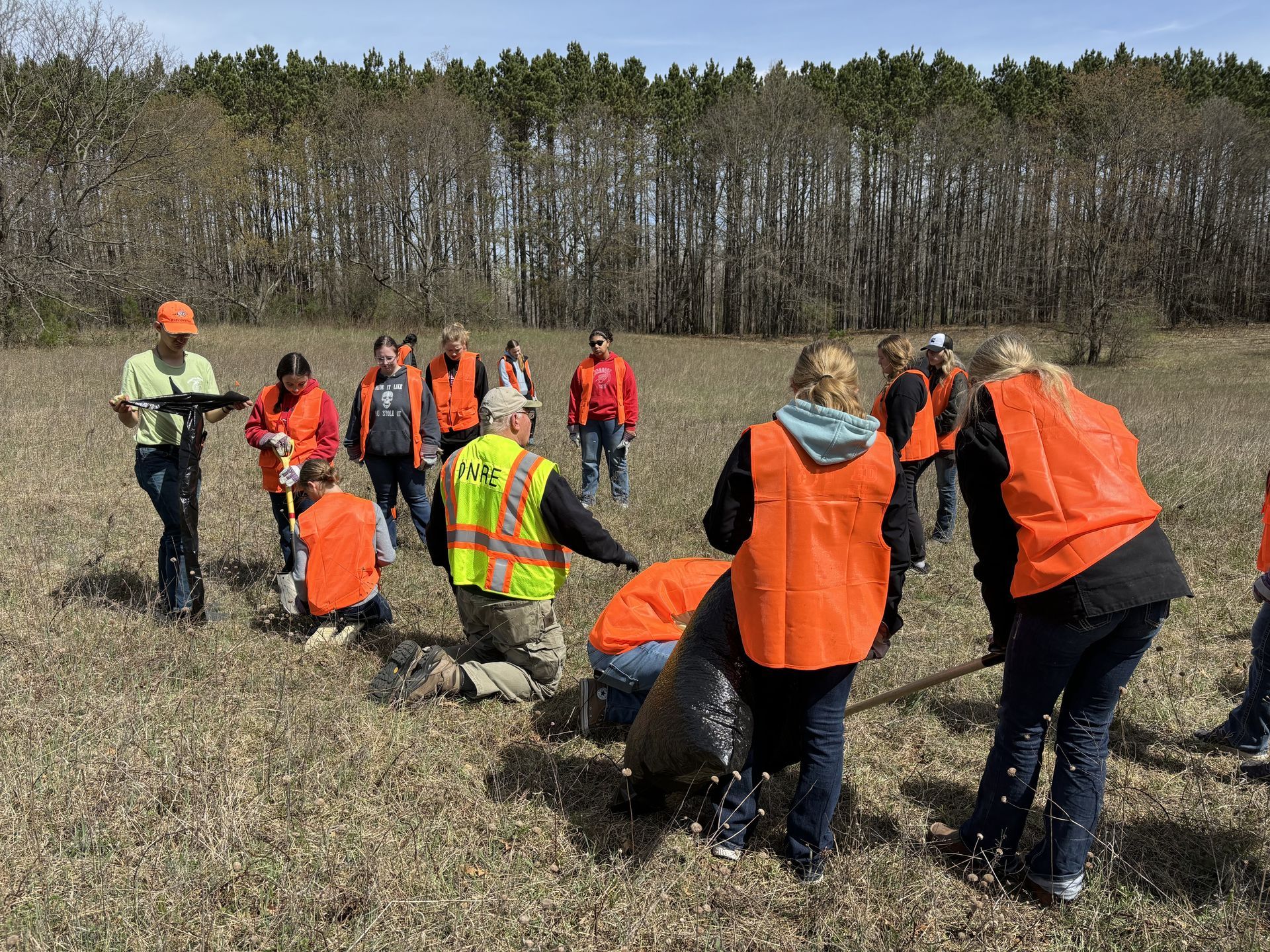On Thursday, April 17, 2025, high school students who are part of the Animal Science and Zoo Management program at Potter Park Zoo in partnership with Eaton Regional Education Service Agency Career Preparation Center joined MUCC’s On the Ground Junior program and the Michigan Department of Natural Resources (DNR) at Rose Lake State Wildlife Area to clear invasive black locust trees from an opening. Students drilled holes into trees that were too large to be cut, and herbicide supplied by the Michigan DNR was injected into these holes. Smaller trees and branches were cut by other students with loppers and handsaws. Using the cut vegetation, they constructed several large brush piles to benefit small mammals and other wildlife. By removing these invasive trees, native plants will be able to grow and regenerate. In total, students improved 1.4 acres of wildlife habitat directly through this project.
On the Ground Junior: Spring Event Recap
Our student volunteers have been hard at work improving wildlife habitat on public lands! MUCC’s On the Ground Junior (OTG Jr.) program, a subset of the On the Ground program, is a fully funded field trip program that brings grade-school classrooms into the outdoors to improve fish and wildlife habitat in their local communities. Through activities like native plantings, brush pile building, and invasive species removal, students gain hands-on experience with conservation and positively impact the world around them. Students also participate in educational activities like predator-prey tag to teach them about population dynamics and other natural resources concepts.
So far this spring season, MUCC welcomed 69 students, teachers, and chaperones who participated in multiple OTG Jr projects with more on the way! In total, they improved over 12 acres of wildlife habitat. Read on for a recap of each OTG Jr project and see what all our awesome student volunteers have been up to.
Thursday, April 17, 2025 - Invasive Species Removal at Rose Lake State Wildlife Area
Wednesday, April 23, 2025 - Tree Planting in the Traverse City Forest Management Unit
Wednesday, April 30, 2025 - Tree Planting, Brush Piles, and Invasive Removal at Haymarsh Lake State Game Area
Learn More
If you are a grade schoolteacher and are interested in organizing an OTG Jr event with us, please contact our Habitat Program and Partnerships Coordinator Olivia Triltsch at otriltsch@mucc.org. These projects fill up quickly, so don’t wait! We would love to help you foster the next generation of conservationists and public land stewards.
Recent Posts






